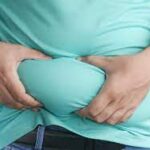People go for different diet plans as well as exercises, even some take injections like Ozempic when it comes to weight loss. A balanced and healthy diet plays a major role in an individual weight loss journey. Some people follow a plant-based food diet and some follow animal-based or some follow both. It depends on a person’s choice. A popular diet for weight loss trending recently is a Non-sugar diet. If you consume excessive sugar it may lead to weight gain, heart disease, type 2 diabetes, obesity, epithelial cell cancers, neurodegenerative disorders, and various autoimmune diseases. Some cut off sugar from their diet in order to lose weight. Non-Sugar food list helps you in your weight loss journey.
In this article, we will provide you with a comprehensive 14-Day No Sugar Diet Food List to guide you through the 14-day journey, ensuring that you enjoy a balanced diet without feeling demotivated. Whether you’re looking to lose weight, boost your energy, or improve your skin and digestion, this no sugar diet is designed to help you achieve these goals in a manageable and sustainable way. Let’s explore the foods you can enjoy while eliminating refined sugar and focusing on healthier alternatives.
What is the No Sugar Diet?
One of the most popular options among people in their weight loss journey is eliminating sugar from their diet. People have a question in mind that what a no sugar diet is? Well no sugar diet is a dietary plan which focuses on eliminating sugar and sugar based products from your daily intake. While it is completely impossible to cut all sugar as sugar is also in natural sources like fruits and vegetables. The main purpose of the No sugar diet is to remove intake of processed and refined sugar base products like beverages, candies, desserts, snacks, and packaged foods which we use daily. On average, Americans consume about three pounds of sugar each week, which translates to roughly 130 grams of sugar per day. This excessive intake is primarily from added sugars found in processed foods and sugary drinks, including soda, snacks, desserts, and even seemingly healthy items like salad dressings or granola bars, which results in weight gain, blood sugar spikes, and a range of other health issues.
No Sugar diet helps people to take a break from sugar addiction. It helps in regulating blood sugar levels and reduces risk of some serious health concerns like obesity, type 2 diabetes, and heart disease. No sugar diet promotes consuming healthy and whole nutritious foods like lean protein, healthy fats, vegetables and unprocessed food items that are good for overall health while eliminating anything with added sugar, high-fructose corn syrup, or artificial sweeteners.
- Granola Bar (1 bar): ~12 grams of sugar
- Ketchup (1 tbsp): ~4 grams of sugar
- Hidden Sugar in Items we used daily are as follow:
- Yogurt (6 oz): ~18 grams of sugar
- Cereal (1 cup): ~9 grams of sugar
- Fruit Juice (8 oz): ~24 grams of sugar
- Salad Dressing (2 tbsp): ~6 grams of sugar
- Bread (1 slice): ~3 grams of sugar
Going “no sugar” means eliminating all sources of added sugars and refined sweeteners from your diet. Here’s a list of common foods and drinks to cut out when you follow a no-sugar diet:
- Soda (regular and diet)
- Sweetened coffee or tea
- Fruit juices (especially with added sugars)
- Sports drinks
- Energy drinks
- Flavored waters
- Cakes, pastries, and cookies
- Candy and chocolate bars
- Ice cream and frozen desserts
- Pies and pastries
- Donuts and cupcakes
- Jellies, jams, and syrups (with added sugar)
- Sweetened popcorn
- Fruit snacks and gummies
- Breakfast bars (with added sugar)
- Sauces and condiments (e.g., ketchup, BBQ sauce, and teriyaki sauce)
- Salad dressings (store-bought with added sugar)
- Prepackaged meals (many contain hidden sugars)
- Canned soups and ready-to-eat meals
- White bread (some have sugar as an ingredient)
- Muffins, bagels, and pastries (often loaded with sugar)
- Pancakes and waffles (especially with syrup)
- Sweetened yogurts (including fruit-flavored)
- Flavored milk (e.g., chocolate milk)
Why Cutting out Sugar is a great decision?
Eliminating Sugar from your diet, especially refined and added sugar found in processed food items not only helps you with weight loss but also there are some other reasons why it is beneficial for your health. Following are some reasons:
1. Improved Weight Management
Added sugar can lead to weight gain due to the number of empty calories in your diet without any nutrient value but reducing sugar from your diet can help you in weight by cutting empty calories from your diet. Excessive sugar can contribute to fat storage in different parts of your body especially around the belly area and thighs. Cutting sugar from your diet helps you to burn fat instead of store.
2. Better Blood Sugar Control
Consuming a lot of sugar in your diet can lead to weight gain, heart issues and increasing blood sugar levels which leads to energy slumps, cravings, and irritability. By removing sugar from your diet can help to manage blood sugar levels which leads to reducing the risk of insulin sensitivity and type-2 diabetes. Regular intake of sugar can cause development of insulin sensitivity, it is a condition in which body cells become less responsive which makes it more difficult to regulate blood sugar levels.
3. Lowered Risk of Chronic Diseases
High risk of sugar intake can lead to severe heart problems like heart attack. The main reason is sugar contributes to high blood pressure, inflammation, and fat buildup around the liver and in arteries, all these factors can lead you to cardiovascular problems. Another reason it leads to insulin sensitivity which contributes to type 2 diabetes.
4. Improved Skin Health
Some people faced issues on their skin after consuming excessive sugar which leads to acne and skin breakouts. The main reason is that sugar triggers inflammation in the body and even the formation of advanced glycation end products (AGEs), which result in collagen damage and elastin fibers in the skin. Other skin health concerns that can be caused by using sugar are aging and wrinkles.
5. Boosted Energy Levels
Eating foods high in sugar can give you a temporary energy boost, but it is often followed by a crash, making you feel sluggish. By avoiding sugar, your body relies on more consistent, long-lasting energy from healthy fats and proteins. Blood sugar fluctuations can make you feel irritable, anxious, or fatigued.
14-Day No Sugar Diet Food List
Here’s a list of the healthiest foods to incorporate into your 14-Day No Sugar Diet Food List. These whole, nutrient-dense options will provide you with the vitamins, minerals, and energy you need while avoiding any added or refined sugars.
1. Ruminant Meats
Ruminant meats refer to the meats of animals that are classified as ruminants. The animals eat grass only and have a 4 compartment in the stomach that allows them to break down everything they eat like plant material, primarily grasses, before digestion. The most common ruminant animals include:
- Cattle (beef)
- Sheep (lamb or mutton)
- Goats (goat meat)
- Deer (venison)
- Bison
- Antelope
Ruminants are rich in nutrients like protein, Vitamin B12, iron, zinc, Omega-3 fatty acids and Linoleic acid. All these help in muscle repairing, increase production of red blood cells, wound healing, good for heart and brain health.
How to Include Ruminant Meats in a No Sugar Diet:
- Lean cuts of beef, lamb, or bison can be use for grilling, roasting, or stir-frying.
- Incorporate them into balanced meals with vegetables, healthy fats, and whole grains (in moderation).
- Choose grass-fed versions when possible for a higher nutritional benefit, especially omega-3s.
Incorporating ruminant meats into your diet, especially if you choose lean or grass-fed options, can be a nutritious addition to a no-sugar diet while supporting overall health.
Nutritional Content of Ruminant Meats (per 100g)
2. Healthy Fats
In a 14-Day No Sugar Diet Food List the second one is healthy fats. It helps in providing long-lasting energy, promotes hormone production and helps in overall health. Here’s a breakdown of the best sources of healthy fats for a no-sugar diet:
1. Monounsaturated Fats: These fats are good for overall health and especially for the heart health as It reduces the risk of heart disease and lower bad cholesterol (LDL). In order to intake monounsaturated fats all you need to consume is Olive Oil,Avocados, Peanut Butter, Almonds and Almond Butter.
2. Polyunsaturated Fats: These fats include omega-3 and omega-6 which are good overall health including heart as well as brain health. Omega-3s are beneficial for heart health, reducing inflammation, and improving brain function. You can consume polyunsaturated fats from various foods like Salmon, Mackerel, Sardines, Tuna, Chia Seeds, Flaxseeds and Walnuts.
3. Saturated Fats (In Moderation): Saturated fats also play an important role when it comes to overall health although consuming it in a moderate amount is necessary. These fats help in boosting energy levels and help in hormone production. You can get saturated fats from the following food items like Coconut Oil, Grass-fed Butter, Ghee and Full-fat Dairy.
Fats are considered as a major source of energy. It provides a slow, steady source of energy taken from carbs minimizing in a diet. Fats support the production of hormones and enzymes which is compulsory for overall metabolism. It also helps in improving satiety, brain health and heart health.
3. Eggs
Eggs play an important role when it comes to weight loss as well as to boost energy levels in our body that’s why it is an excellent choice for a no-sugar diet as it is high in nutrition, versatility and can be a great addition in your daily meals especially in breakfast without compromising your low-sugar goals. Eggs contain zero grams of gram, which is perfect food for a no sugar diet. It also contains 6 grams of protein which helps in muscle repair and immune function. Eggs are rich in essential vitamins like Vitamin A, Vitamin D, B12, and Riboflavin. Eggs are high in protein and fats, which can help you feel full and satisfied for longer. It is used in a variety of dishes for breakfast, lunch, dinner, or snacks.
Nutritional Content of Eggs (per large egg):
4. Cheese and Yogurt
Cheese is also a good source when it comes to protein, which helps in repairing muscle, immune function and overall health. A 28 grams of cheese contains around 6 to 8 grams of protein. It is also full of healthy fats, especially omega-3 fatty acids. Some types of cheese, such as grass-fed varieties, offer a better fat profile with more beneficial omega-3 fatty acids. Cheese is also full of calcium, zinc, phosphorus and magnesium, which helps in repairing tissues and immune health. Some cheeses, like aged cheddar, gouda, or blue cheese, contain probiotics that support a healthy gut microbiome, aiding digestion and promoting gut health. You can include cheese in your no-sugar diet by adding cheese slices or cubes, you can also combine cheese with non-starchy veggies to add more taste. Add cheese to salad and in scrambled eggs to gain more protein.
The key to keeping yogurt in a no-sugar diet is choosing unsweetened varieties. Plain Greek yogurt or plain regular yogurt typically contain no added sugars, although natural milk sugars (lactose) are present in small amounts. Greek yogurt is full of nutrients specially protein, it contains 10-15 grams of protein on single serving. Yogurt is an excellent source of calcium, vitamin B12, phosphorus, and riboflavin which helps in energy boosting.
Nutritional Comparison: Cheese vs. Yogurt (per 100g)
5. Seafood
Seafood is an excellent choice for a no-sugar diet because it is naturally low in carbohydrates and contains zero sugar. Many types of seafood, especially fish and shellfish, are packed with essential nutrients like high-quality protein, omega-3 fatty acids, and vitamins and minerals, which is important for muscle growth, tissue repair, and immune function. making them a healthy and satisfying option for those aiming to avoid sugar. Some fishes like salmon, mackerel, and sardines, are rich in omega-3 acids which helps in regulating blood sugar levels. It is also good for heart and brain health. Seafood is naturally very low in carbohydrates which is good for overall health. Fish is also full of Vitamins like Vitamin D and Vitamin B12, It is also low in calories that’s why it is the best item for no sugar diet food list.
Types of Seafood to Include in a No-Sugar Diet:
- Fatty Fish (High in Omega-3s):
- Salmon
- Mackerel
- Sardines
- Lean Fish (Lower in Fat):
- Tilapia
- Flounder
- Snapper
- Shellfish:
- Shrimp
- Crab
- Lobster
- Oysters
- Mussels
- Other Seafood:
- Squid (Calamari)
- Octopus
- Scallops
Nutritional Benefits of Popular Seafood Types:
6. Low Carb Veggies
Low carbs veggies on sugar diet are as follow:
- Kale contain 3.6 g per 100g (net carbs)
- Spinach contains 1.1 g per 100g (net carbs)
- Broccoli contains 4.0 g per 100g (net carbs)
- Cucumber contains 3.6 g per 100g (net carbs)
- Bell Peppers contains 4.0-6.0 g per 100g (net carbs)
- Asparagus contains 3.7 g per 100g (net carbs)
- Avocados contains 1.8 g per 100g (net carbs)
- Mushrooms contains 2.3 g per 100g (net carbs)
- Eggplant contains 3.5 g per 100g (net carbs)
- Celery contains 1.4 g per 100g (net carbs)
- Arugula contains 3.7 g per 100g (net carbs)
- Brussels Sprouts contains 5.2 g per 100g (net carbs)
- Cabbage contains 3.3 g per 100g (net carbs)
Root Vegetables in No Sugar Diet
Below-ground vegetables, also known as root vegetables, grow underground and are typically rich in fiber, vitamins, and minerals. You can also add them in No sugar diet food list as follow:
- Radishes
- Carrots
- Turnips
- Beets
- Sweet Potatoes
- Celeriac (Celery Root)
- Daikon Radish
- Jicama
No Sugar Beverages that make the list
- Water
- Sparkling Water
- Herbal Tea
- Black Coffee
- Green Tea
- Iced Tea (Unsweetened)
- Coconut Water (Unsweetened)
- Vegetable Juice (Homemade, No Added Sugar)
- Apple Cider Vinegar Drink (Diluted, No Added Sugar)
- Almond Milk (Unsweetened)
Beverages to Avoid on a No-Sugar Diet
- Soda
- Energy Drinks
- Sweetened Coffees and Lattes
- Juices
- Sweetened Tea
Conclusion: 14-Day No Sugar Diet Food List
Embarking on a 14-day no sugar diet is an excellent way to reset your body, improve your health, and reduce the harmful effects of added sugars in your daily meals. By eliminating sugary foods and beverages, you can support weight loss, improve mental clarity, and stabilize blood sugar levels. The 14-day plan focuses on nutrient-dense foods that are free of refined sugars, promoting long-term health benefits without the need for calorie restriction.
Also Read: Why do I get Diarrhea after eating Salad? Causes and Solutions


